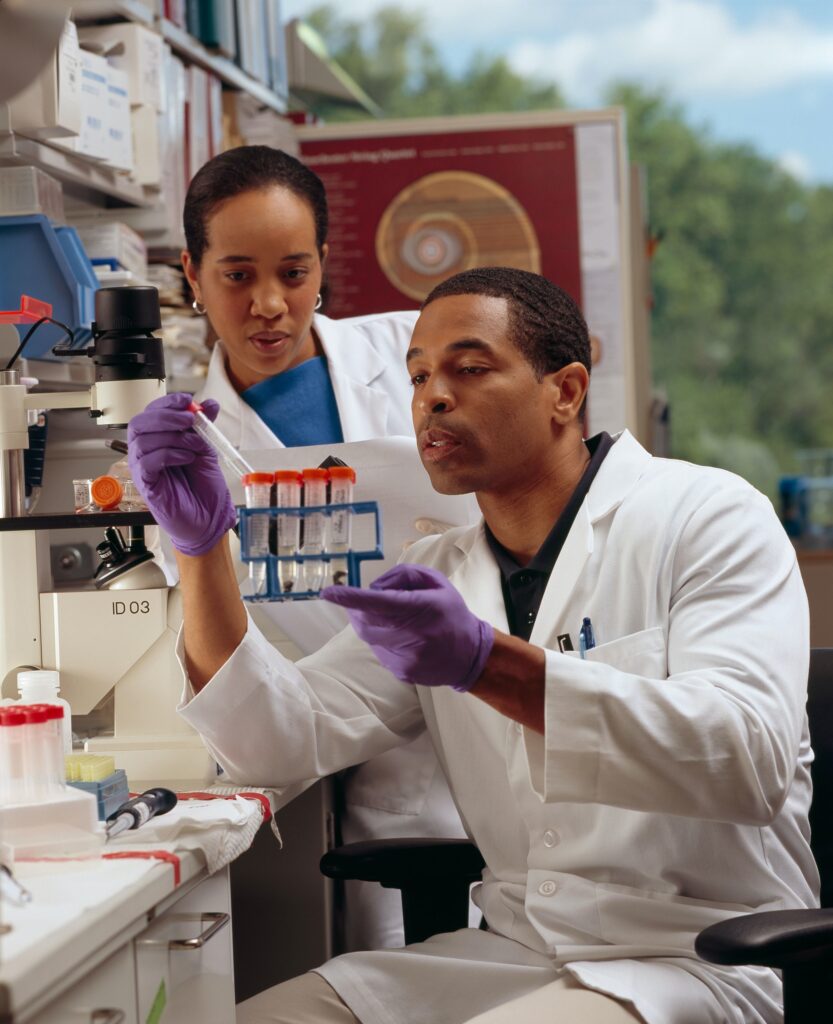What Can You Do with A Biotechnology Degree?
Biotechnology is a rapidly growing field that holds immense potential in various industries. From healthcare to agriculture, biotechnology degree plays a crucial role in advancing scientific knowledge and improving human life. In this blog, we will delve into the world of biotechnology, exploring the career options available with a biotechnology degree and discussing the growing importance of biotechnologists in achieving future advancements.

What is a biotechnologist?
A biotechnologist is a professional who utilizes biological processes, organisms, or systems to develop innovative solutions and products. They work on cutting-edge research, develop new technologies, and contribute to advancements in various industries. A successful biotechnologist possesses a strong combination of scientific knowledge, technical skills, and critical thinking abilities.
Career options in biotechnology
The field of biotechnology offers a wide range of career opportunities. Biotechnologists can find employment in sectors such as pharmaceuticals, agriculture, environmental science, healthcare, and more. The demand for biotechnologists is projected to grow significantly by 2024, driven by the need for innovative solutions to complex problems and the expanding application of biotechnology in diverse industries.
Jobs you can get with a biotechnology degree:
Let’s explore some common job titles in the biotechnology field:
- Research Scientist: Conducting experiments, analyzing data, and developing new technologies.
- Biochemist: Studying the chemical and physical principles of living organisms.
- Bioprocess Engineer: Designing and optimizing production processes for biotechnological products.
- Quality Control Analyst: Ensuring adherence to quality standards and regulations in biotech manufacturing.
- Pharmaceutical Sales Representative: Promoting and selling biotechnological products to healthcare professionals.
- Genetic Counselor: Providing information and support to individuals and families regarding genetic conditions.
Each job role comes with its unique responsibilities, salary ranges, and opportunities for career progression.
Working in health Industry
Biotechnology is playing an increasingly important role in the wider health industry where it helps to improve diagnostics, streamline drug discovery and development, and improves patient care.
Biotechnology roles that fall under the health and medical sector include:
Microbiologist
Microbial biotechnology is an expanding sub-area of microbiology, where scientists genetically engineer micro-organisms for research and drug development.
If your degree included modules or a specialism in microbiology, you could attain a role as a microbiologist where your work will focus on analysing and researching microscopic organisms.
Epidemiologist
Epidemiologists study the nature of epidemics, delving behind the causes, effects, and potential risk mitigation strategies to help defer further occurrence.
Biotech graduates working in this area, draw on their data analytical skills to assess the benefits and risks of medicine over time and feedback this information to regulatory agencies and patient and healthcare providers. Many biotechnology graduates who pursue a career in this area start with a biotechnology degree as a foundation, before taking post-graduate courses in epidemiology.
Biological technician
Biological technicians play a key role in laboratories where they conduct experiments, keep detailed logs and records, and analyse test samples. Biotechnology graduates often enter industry as a biological technician, where they contribute their expertise and experience in supporting laboratory operations.
Biomedical engineer
Biomedical engineers collaborate with a range of stakeholders across the wider scientific field, from scientists and engineers to healthcare providers to create effective healthcare products and methods for patients. A degree in biotechnology is particularly useful for this career route, as software and computer programming heavily intersect with handling biological matter.
Working in Agriculture Industry
In agriculture, developing genetically modified crops to resist disease and improve yield is a growing priority internationally. Biotechnologists help to develop and formulate new ways to increase production by both developing genetically modified crops, as well as bio-fertilisers to reduce reliance on environmentally damaging chemical fertilisers.
Biotechnology jobs that fall under the agricultural sector include:
Bioinformatics scientist
Bioinformatics scientists collaboratively work to combine software and computer engineering with biology to develop solutions for the agricultural industry, and functional databases to translate agricultural data.
Bioinformatics scientists often work with both software engineers and biologists together to develop solutions like automated data mining, reusable libraries, and reports on crucial benchmarks. They also play an important role in harnessing data to assess risk factors in research.
Microbial physiologist
Microbial physiologists assess and examine the relationships between a micro-organisms structure, and environment, with a particular focus on the response of a microbe to their environment. Given the role’s focus on gene products and synthesis, data and analysis play particularly important roles.
In agriculture, microbial physiologists help assess soil appropriacy for crops by analysing gene factors that could or do react to specific agricultural environments and soil types – helping to improve yield and drive efficiency.
Formulation engineer
While a degree in chemistry is often cited as essential for formulation roles, biotechnology is a useful degree to have in agricultural formulation engineering. Formulation engineers in agricultural organisations help maximise quality, efficiency, and capacity of manufacturing technologies, and advise the creation of development programs for formulation engineering.
Biotechnologists working as a formulation engineer would work at the threshold between both chemistry, biology, and technology as they design and develop trials from pilot through to manufacturing stages to improve efficiencies across agricultural processes.
How to get a job in biotechnology
To start a successful career in biotechnology, it is important to pursue education and degree programs that provide a strong foundation in the field. Building relevant skills and experience, such as laboratory techniques, data analysis, and project management, is crucial. Networking, internships, and research opportunities are valuable for gaining practical knowledge and establishing industry connections. Staying updated with the latest industry trends and technologies is essential in this rapidly evolving field.
Future prospects and the importance of biotechnology in 2024:
Biotechnology will play a critical role in achieving then 2024. [Discuss specific focus and its connection to biotechnology advancements and innovations]. Biotechnologists are at the forefront of driving these advancements, contributing their expertise to develop sustainable solutions, improve healthcare outcomes, and enhance agricultural practices.
Conclusion
A biotechnology degree opens up a world of exciting opportunities. Whether you have a passion for research, want to develop life-saving medicines, or are interested in sustainable agriculture, biotechnology offers diverse career paths. Explore the possibilities, build relevant skills, and stay updated with industry trends to maximize your chances of success in this thriving field. Embrace the power of biotechnology and contribute to shaping a better future!

